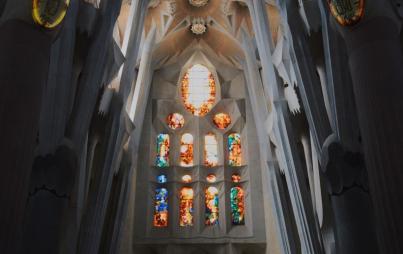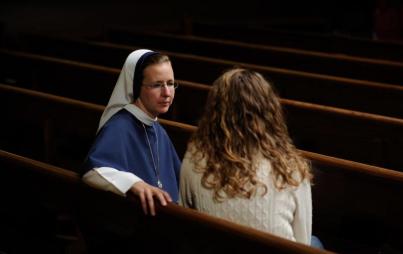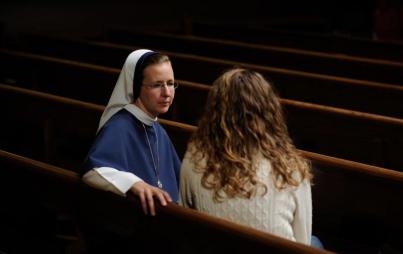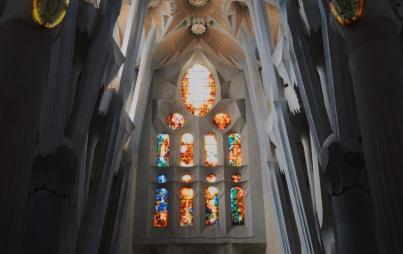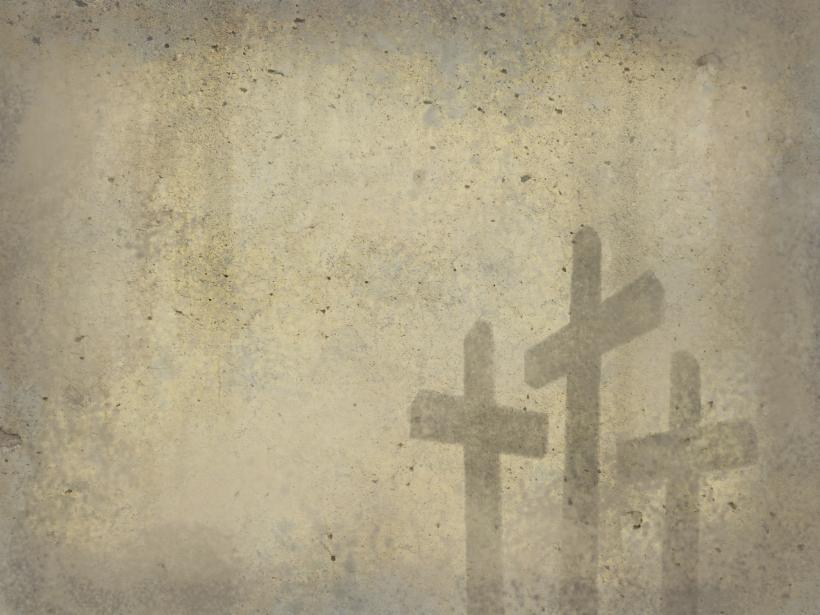
Thinkstock
"The past is a foreign country," wrote novelist L.P. Hartley. And yes, he wrote about the past now in the past; this notion has since become a proverb—a shorthand way of describing the inaccessibility of earlier eras and earlier ideas.
Hartley's dictum, in the present day, can be seen not just as a clever concept, but as a guide and a warning. The past is not as relevant to the present as it seems to be; it cannot be easily understood, and it cannot be easily applied. This is broadly Elizabeth Bruenig's point in her recent piece arguing for a progressive Catholic church in The New Republic. Conservative critics have argued that Pope Francis' (very mild) reforms are not true to the Church's past.
Bruenig responds by pointing out that the past is not only a foreign country—it's almost a different planet:
"The past, whatever we make of it, is in some permanent but elusive way unknowable to us ... To turn to the past with explicitly political motives—say, to attempt to discover a traditional or old-fashioned approach to a problem is to saddle history with the task of solving our modern problems . . ."
We simply can't know the past, so looking to it to solve modern difficulties is therefore foolish, and even (Bruenig seems to suggest) presumptuous. We are stranded, it seems, in the present—a small knowable island between the vast, blank seas of past and future.
This is clearly true in some sense. As Bruenig explains, conservatives tend to create a very particular—and arguably imaginary—past. (For example, Bruenig says, conservatives act as if the church at some point in the past unambiguously sanctified private property, which it never did.) This fallacious vision of the past is in fact modern; it's a contemporary historical construct, spackled together with nostalgia, wishful thinking, and willful misapprehension.
And in truth, this is the case with all visions of the past. We all, to paraphrase Bruenig, invent what we inherit:
"To insist that the Church differentiate herself from the world by adhering to the praxis of the past—be it saying Mass in Latin or ignoring man-made climate change because it is not present in biblical text—is to relate to the past in a wholly modern way."
We don't have time machines; now is all there is.
But what is now? You can argue that the past is gone and the future is yet to be—but where is that present moment, that ineffable instance where we can see what's transpiring, clear-eyed and true? Without a past, imaginary or otherwise, where is there even an "I" to discuss past and future, anyway?
The self is mostly a memory; you are the person who read this essay by Elizabeth Bruenig, who voted against those conservative dips, who read these books, who loved those people. The past isn't a foreign country; it's your life, literally. And if it's opaque, it's opaque not because it's too distant, but because it's too close; looking at it is like trying to turn your eyes inside out.
What's true of identity is true of politics and philosophy too: " . . .The past cannot be recovered, but only shabbily reconstructed," Bruenig says. But where does that understanding of the past come from if not from those past—and dead—modernist existentialists, who saw human life fraught with absurdity? If an imagined past is a product of the present, then an imagined present—unmoored from tradition—is, in turn, a product of all those unmoored, earlier thinkers ("the past is a foreign country") who have seen the present in precisely this way.
I understand where Bruenig's coming from; conservative fetishization of the past is stupid, simplistic, and mean-spirited, and it should be hooted at. But I also think, in reaction, that progressives can be too quick to cede tradition—and too quick to ignore the ways in which the most corrosive aspects of the contemporary right are linked, not to tradition, but to the vision of an omnivorous future, a vision of capitalism for example. (As the free market has been around for a while, it can cloak itself in the past, but at its heart it's an ideology of creative destruction in the name of an ever-brighter future; a dream of endless innovation forever turning the past into an irrelevant obsolescent dung heap.)
Progressives can certainly acknowledge that the past is confused and contested; something to be approached with caution and humility. But I think they also need to recognize that, for all its uncertainty, the past is vital as a resource, as a bulwark, and as an inspiration. As Bruenig suggests, Pope Francis' concern with climate change and the stewardship of the earth, for example—which so upsets American so-called "conservatives"—is rooted in his connection to St. Francis, "Be praised, my Lord, through our sister Mother Earth / Who feeds us and rules us, / And produces various fruits with colored flowers and herbs."
You could say that the Pope is creating an imaginary past to confront modern goals. But you could also say that he's drawing strength and insight from his tradition in order to think about, and deal with, the present. St. Francis isn't in a different country; he's right here, walking with us.
The traditions we are a part of, and the faith we keep, shine a light on where we're going. The past may be a stranger, but it's a stranger that lives in us, and, for better or worse, with lies and with truth, guides our way.

